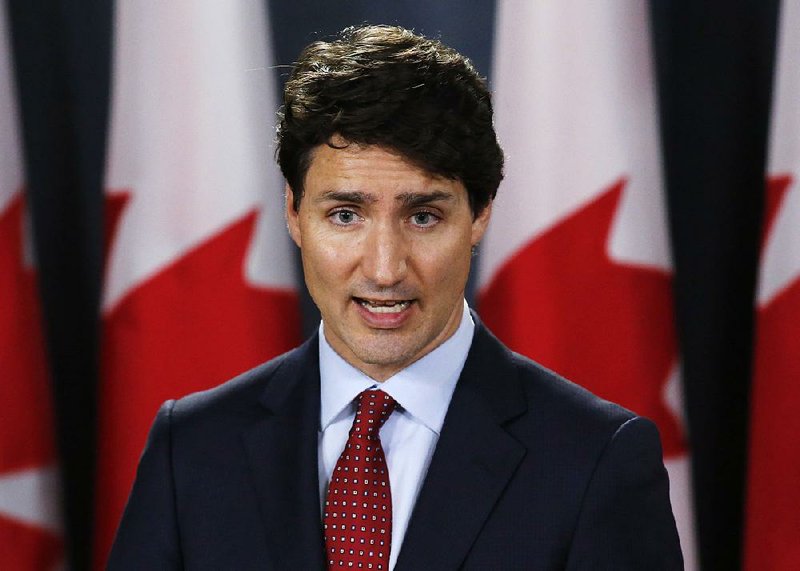Canadian Prime Minister Justin Trudeau's government finalized tariffs on $12.6 billion of American goods and pledged money to support companies and workers hurt by U.S. levies on Canadian steel and aluminum exports.
Foreign Minister Chrystia Freeland announced final measures Friday that take effect Sunday, Canada's national holiday.
The prime minister's tariffs on U.S. goods cut a broad swath from steel and aluminum to whiskies, toilet paper, washing machines, motorboats -- even maple syrup. The duties will be 25 percent on steel and 10 percent on everything else. Products such as beer kegs, mustard and certain jams were removed from the final list, which otherwise doesn't stray far from an earlier proposal. The levies will remain in effect until the United States eliminates its tariffs on Canadian steel and aluminum.
"We will not escalate, and we will not back down," Freeland told reporters at a steel mill in Hamilton, Ontario. "We are acting in very close collaboration with our like-minded partners in the European Union and Mexico." She also reiterated the U.S. measures are "illegal" and America has a trade surplus with Canada on iron and steel.
Canada will provide as much as $1.5 billion in assistance for affected workers, including plans to expand a work-sharing program and enhancements to a corporate innovation fund, similar to steps the government took to cushion the impact of a softwood lumber spat.
The country is also said to be preparing a further set of quotas and tariffs on steel from other countries, to prevent dumping or diversion after the U.S. tariffs kicked in. Innovation Minister Navdeep Bains said Friday alongside Freeland that he will act soon on that file, while declining to provide details of how it would work.
The economic impact of the latest tariffs fight is minimal compared with a pair of other looming Canada-U.S. trade issues: potential auto tariffs and threats to end the North American Free Trade Agreement, which includes Mexico. Trump and Trudeau have clashed recently, with the president warning Canada will pay for it.
"If they said tomorrow those auto tariffs are in place, it becomes a meaningful hit," said Mark Chandler, head of fixed-income research at RBC Capital Markets. "People are more worried about what happens to autos."
Steel costs could rise further if Canada follows through on plans to impose tariffs and quotas on non-U.S. imports from China and other countries. The measures may be announced as early as next week, people familiar with the plans said. Finance Minister Bill Morneau said his government will "absolutely" stand behind companies affected by metal tariffs.
Canada also faces risks from the U.S.-China trade dispute. Canada sends three quarters of its exports to the United States, so any slowdown in American growth will affect Canada. At the same time, it's a major oil producer and any Chinese slowdown could crimp demand.
China said late Thursday it is ending limits on foreign ownership in auto manufacturing, insurance and other fields but didn't directly address complaints about trade and technology that are fueling the conflict with Washington.
The change had been sought by Washington, Germany and other trading partners. They complain Beijing blocks access to its state-dominated economy while Chinese companies operate freely in their countries.
China's announcement followed Trump's threat, rescinded on Wednesday, to restrict Chinese investment in the United States. But it confirmed promises made as early as November, before the latest dispute erupted.
Business groups said Friday it was too early to know the impact until licensing and other rules are released.
Information for this article was contributed by Josh Wingrove, Greg Quinn, Stefanie Marotta and Theophilos Argitis of Bloomberg News; and by Joe McDonald of The Associated Press.
Business on 06/30/2018
